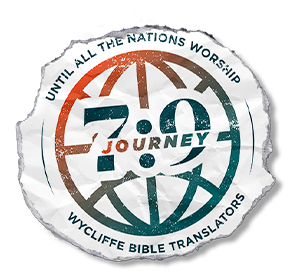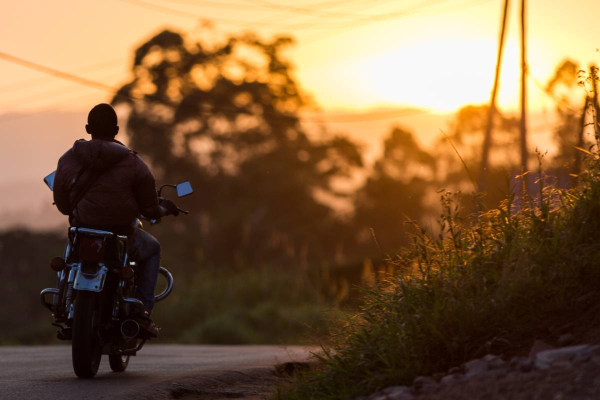Meet Selmira
After a lifetime of suffering, she found new life in God’s Word.

On a side street in the bustling city of Iquitos, a bright orange, four-story building towers over the surrounding neighborhood. From the balcony you can see miles of homes stretching to the edge of the nearest river. Some even sit on stilts over the water’s edge or float on makeshift wooden docks, their tin roofs shining in the sunlight. The continuing system of rivers is barely visible in the distance. Each river hosts more villages and communities.
You see people everywhere you look. They cruise across the river in boats, ride through the streets on motorbikes and taxis, shop the sprawling open-air market, and find relief from the heat on shaded verandas and riverside park benches.




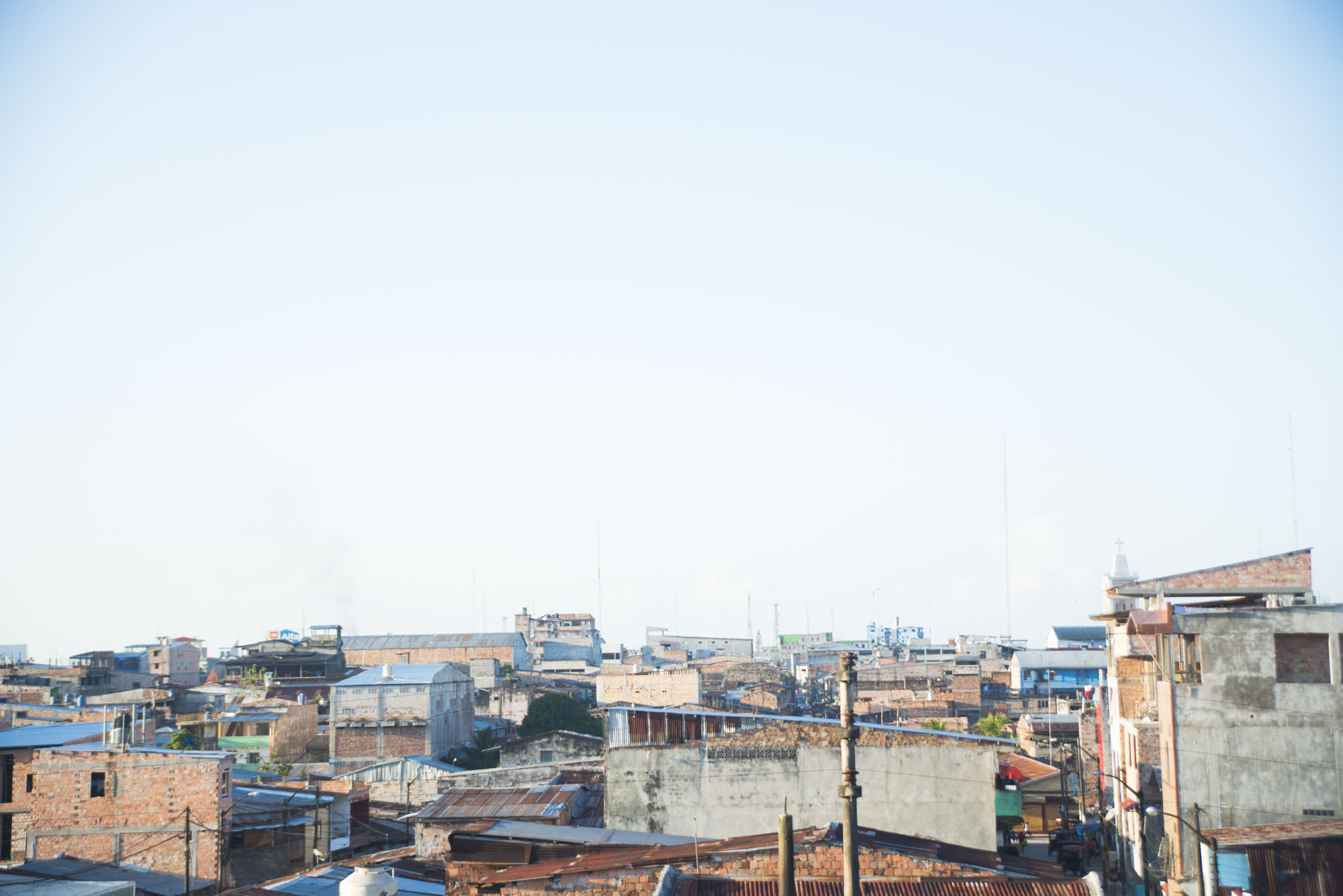
Selmira arrives at the orange building — the Napo Quechua translation workshop center — that will be her home for the next month. She just completed the three-and-a-half day journey by boat to get here from her riverside village. It’s a trip she makes three times a year, leaving her husband and children behind to come translate Bible stories into her language.
Her husband used to come with her to these translation workshops. He said he got lonely when she was gone. Secretly, Selmira thinks he was suspicious; of the five Napo speakers on the translation team, she’s the only woman. Now he’s more trusting, but Selmira worries about him while she’s away. She wonders if he’s taking care of the kids, or if he started drinking again.
Napo Quechua Culture
Shamanism and alcoholism are prevalent in the Napo Quechua culture. Alcohol is a major part of every gathering or ceremony invoking spirits, which happen often. In most families, the drunkenness leads to violence. And when the men are too drunk to fish or work the fields, poverty prevails. Babies go hungry and are given alcohol to stop their crying and help them sleep.
Selmira was just a young teen when she married. Most Napo girls marry even younger, but she asked to wait until after she finished primary school. She wanted to learn to read first.
Today Selmira is 51. Most Napo Quechua people don’t pay much attention to their age, but Selmira remembers hers easily because she knows how old she was when her mother drowned — 28 — and how many years she’s had to live without her.



In the course of Selmira’s marriage, she and her husband have buried 11 children and suffered four miscarriages. Once, when her nine-year-old boy died from a snakebite, she was so traumatized that she ran away. Her older daughter took her in for three months after that so Selmira could grieve.
God Spoke to Selmira

Selmira believes that before she ever gave her life to Christ, God spoke to her in dreams. She dreamed there was a large tree laid across a river as a bridge, and she was trying to cross it. She was wobbling dangerously when a man appeared wearing a bright white robe. He handed her a Bible, and when she nearly fell, he took her right hand and led her across the river to safety.
Shortly after that she had another dream in which she was climbing a tall ladder to heaven. When she reached heaven, it was completely silent and there were many houses, but they were all empty. A man appeared and asked her, “Why did you come here? You have to go take care of your children and serve God's Son."
After those dreams, Selmira started searching for a Bible she could understand.
Journey With Us
New to Wycliffe? Travel the world virtually with us and pray along the way. No passport needed!
Book Your Trip
Selmira's Transformation
She heard about a workshop on sharing Bible stories in oral cultures like hers. There she met a Wycliffe translator named Christa. Selmira invited Christa and her ministry partner, Maritsa, to her village to help her learn more Bible stories. The more she learned about Scripture, the less she drank and the more she felt love and compassion for the people around her.
When Selmira first quit drinking, her husband threatened to leave her. “He wanted a wife who would go drinking with him,” she said. “But whenever he got drunk, I put my hand on him and prayed for him, and he got less and less drunk.”

Since she joined the Napo Quechua translation project with Christa, Maritsa and the other translators, she’s meeting more Christians who she can share her new life with. Sometimes she feels closer to them than to her own family, she said. In those relationships she draws strength and comfort. She also gets those things from God's Word.
As a translator, Selmira has excelled quickly, even though it’s hard work. “It’s wearing out my brain,” she said with a smile. Her peers look to her for guidance when studying Bible stories because they trust her judgment and understanding. She’s one of the only translators who have never missed a workshop in the past four years.
"If I don't go, I'll miss out on these things, and I really don't want to miss and get behind," she said.
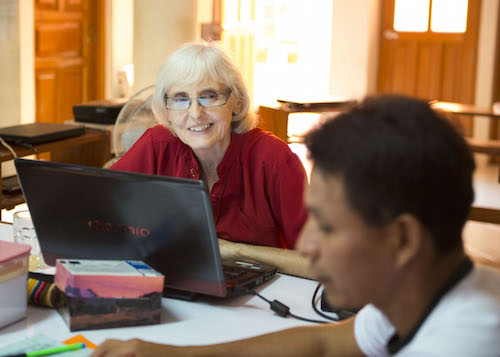


Her favorite thing about translation work is sharing the Bible stories with others. Back home, she spends every Sunday afternoon reading the newly translated stories to anyone who wants to listen. “The kids really like the story of the blind man at the gates of Jericho, and Zaccheus,” she said. “Sometimes they want to repeatedly hear the stories.”
It started just with kids, but now her neighbors come too. Even the village shaman and the local religious leader come to hear Selmira read. Lately her husband has been listening too.
“It's important to have it written because then it lives on,” she said. “It's important for them to learn because it teaches them how to make themselves strong with Jesus and live a better life than our ancestors have been living without knowing God.”

New Life in God's Word
Today Selmira beams with joy. When she’s not translating, she loves to cook and read to her grandkids. And she loves to sing about Jesus. Her favorite song is called “Jesus Is Powerful.” It’s about how Jesus heals the sick and gives new life.
“Only Jesus can do this,” she said.
With every new story she translates, God reveals how He’s been working in her life, not unlike the lives of people in Scripture.
When she read the story of Job, Selmira thought of her own suffering after losing her mom and kids. But she knows God wasn’t punishing Job, so she has hope for her life too. When another Christian couple in her village lost two of their children, they thought God was angry with them. But Selmira was able to share her story and encourage them.
"God helped me stay in Him, even though when my kids died people told me I should quit,” she said. They told her she was being punished for abandoning their traditional religion. “But I didn't want to turn back. God helped me through that." God had transformed her heart, and she trusted Him.
“I don’t want to go back to my old owner, Satan,” she said. “Christ has died for me. I want to stay with Him.”
When she learned the story of Abraham and how he desired children, she remembered God’s promise to provide descendants as numerous as the stars. She often thinks of the 11 children she buried. But today she has 11 grandchildren to teach about God’s promises.
“Abraham followed God’s calling,” she said. “People ask why I go to workshops and follow these sisters. I tell them it’s God’s calling, and I’m following.”
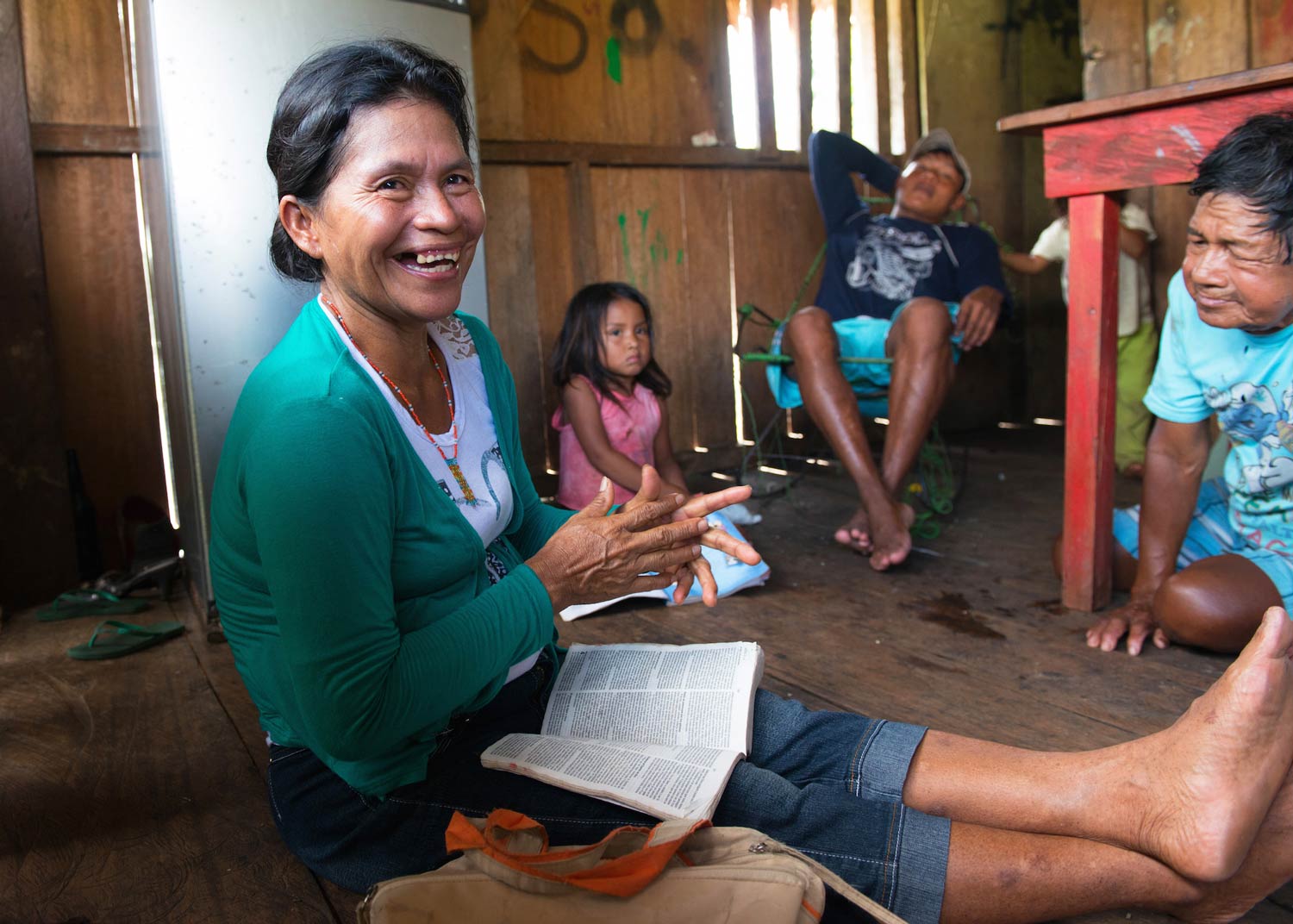
Sign Up for Weekly “God Sightings” Text Messages
Each week, you can receive an update on what God is doing around the world — directly to your phone! Stay informed, inspired and encouraged by the latest news, and join us in praying for God’s name to be made known among the nations through the work of Bible translation.
Text SIGHTINGS to 407-358-0916 to get started.


